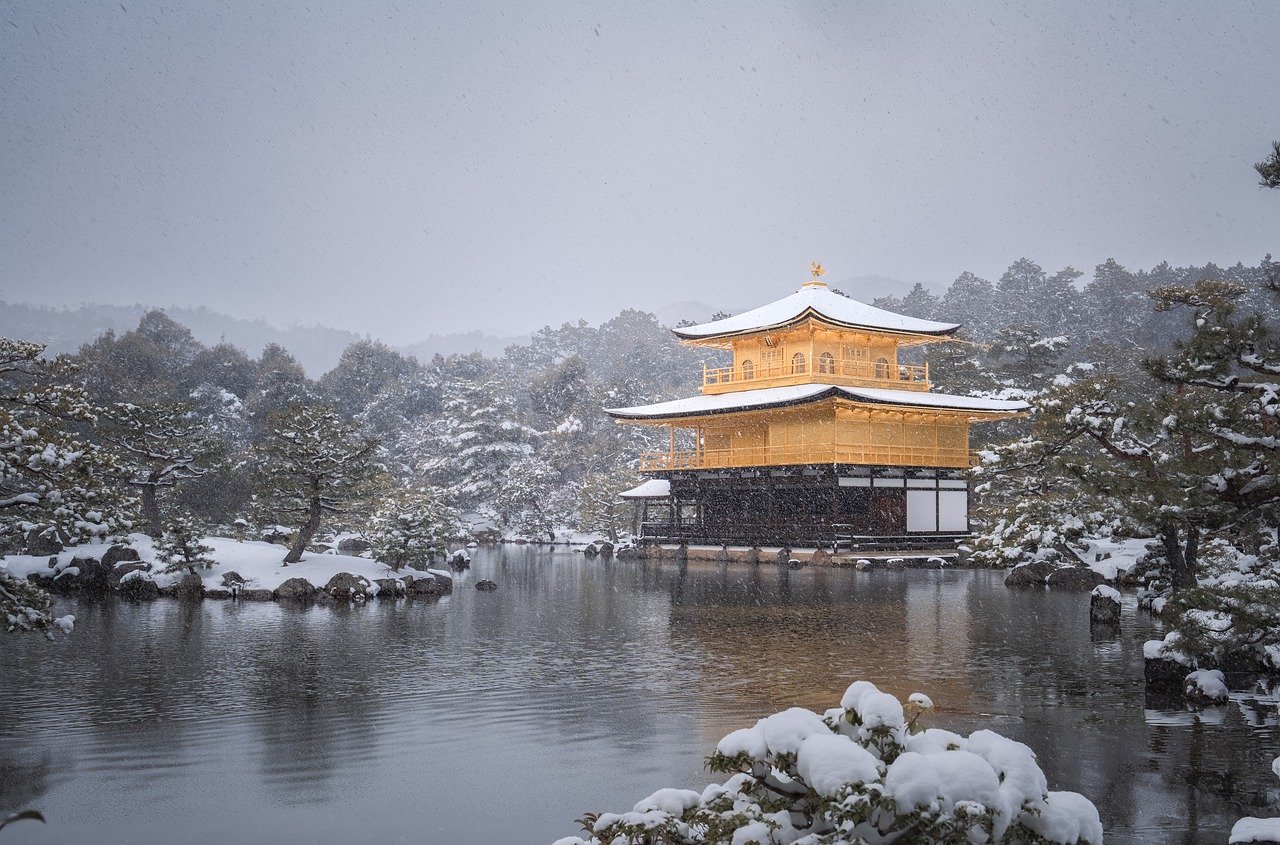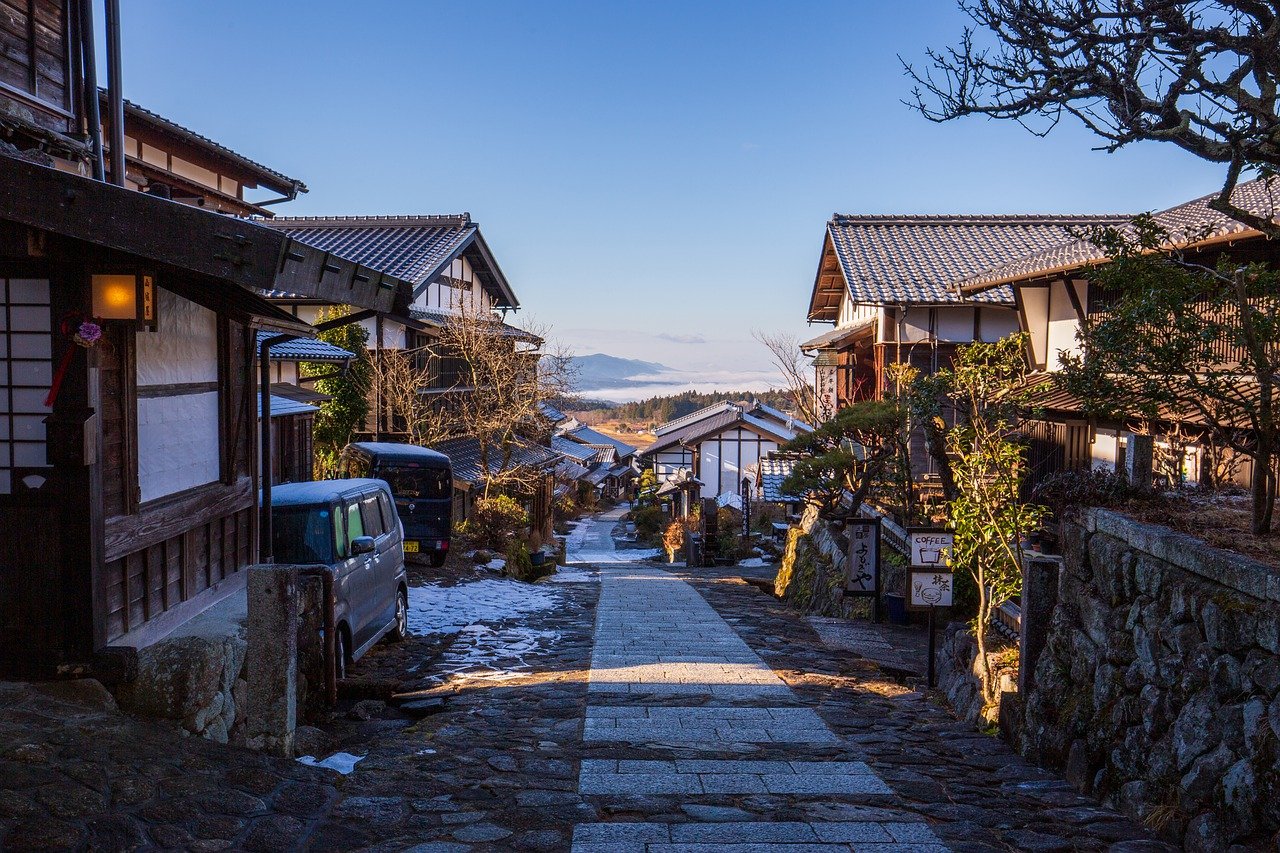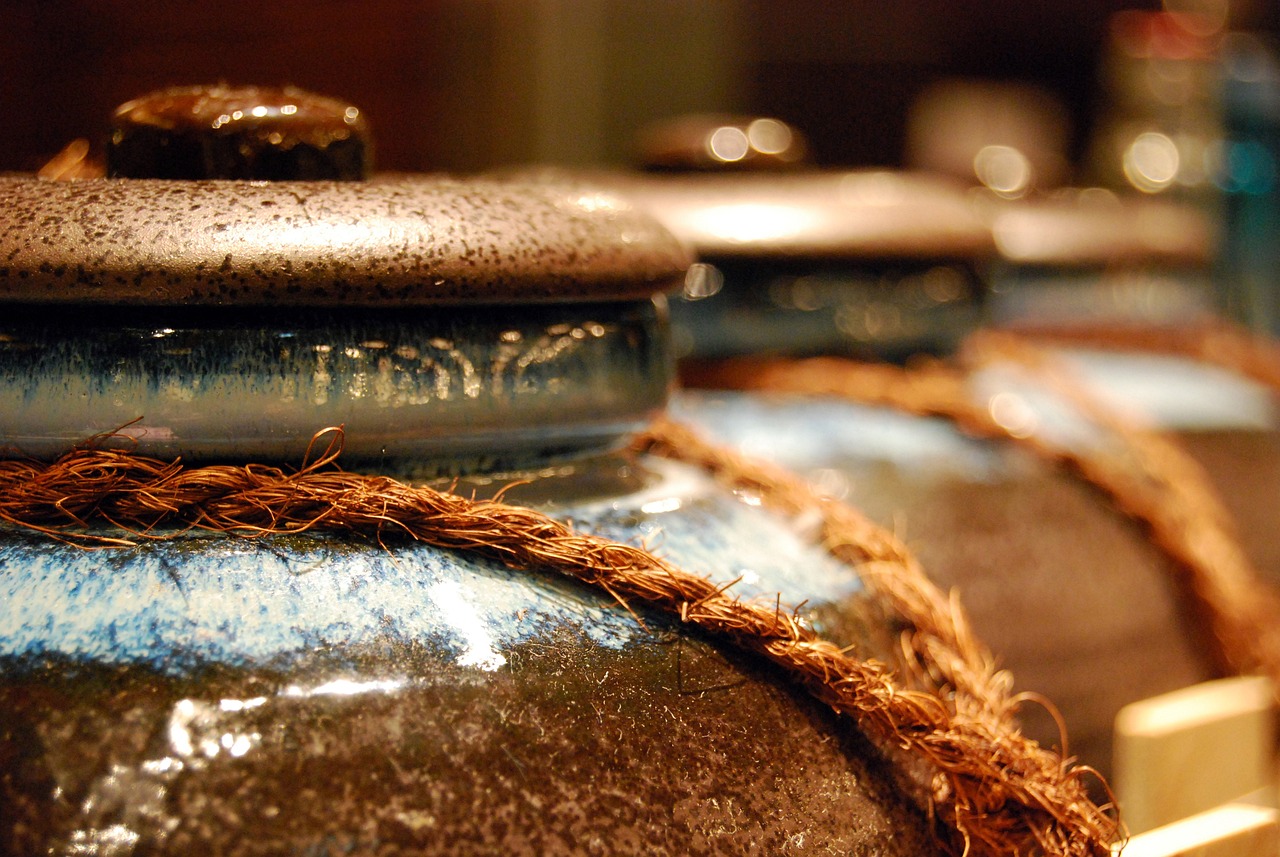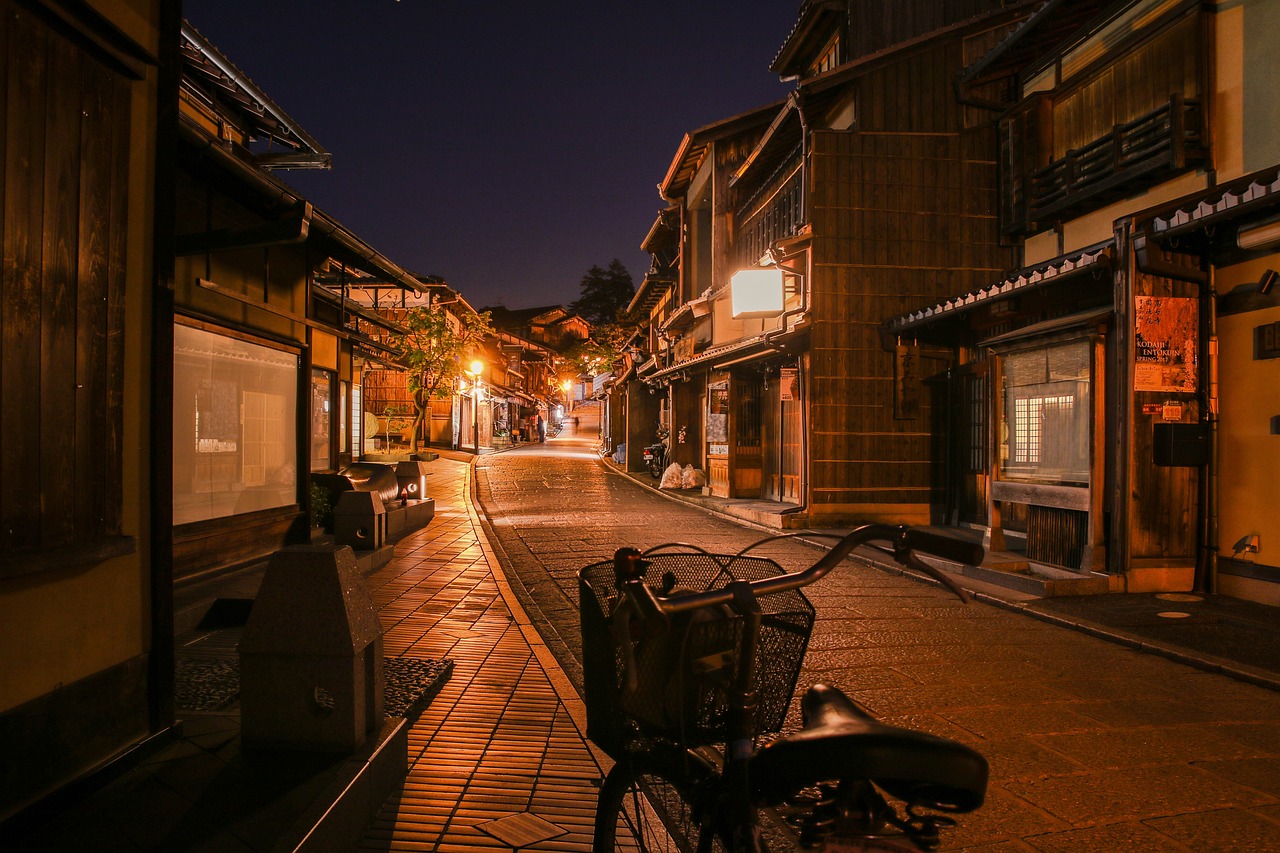Eco-Conscious Travel Strategies for Japan’s Okinawa Islands
Embark on a journey to the picturesque Okinawa Islands in Japan, where eco-conscious travel strategies pave the way for a sustainable and enriching experience. By embracing environmentally friendly practices, visitors can immerse themselves in the island's natural beauty while treading lightly on the delicate ecosystem.
When it comes to exploring Okinawa, opting for public transportation is not only convenient but also a greener choice. Buses, trains, and ferries offer a sustainable way to navigate the islands, reducing carbon emissions and supporting the local transportation infrastructure.
For those seeking eco-friendly accommodation options, Okinawa boasts a range of choices that prioritize sustainability and conservation efforts. From green-certified hotels to traditional Ryokans and Minshukus, visitors can rest assured that their stay aligns with their eco-conscious values.
Indulging in sustainable dining experiences is another way to support local communities and reduce environmental impact. Choosing restaurants that serve locally sourced, organic, and seasonal food not only minimizes food miles but also celebrates the island's culinary heritage.
Engaging in community-based ecotourism activities allows travelers to actively participate in conservation efforts while connecting with the local culture. Whether joining beach clean-ups or marine conservation initiatives, these experiences foster a deeper appreciation for Okinawa's natural wonders.
When it comes to souvenir shopping, opt for responsibly sourced products crafted by local artisans using traditional techniques. By selecting sustainable souvenirs, visitors can support the local economy and preserve the island's cultural heritage.

Public Transportation Options
When it comes to exploring the stunning Okinawa Islands in Japan, opting for public transportation can significantly reduce your carbon footprint while immersing you in the local culture. The islands boast a well-connected network of buses, trains, and ferries that not only offer convenience but also promote sustainable travel practices. By choosing public transport over private vehicles, visitors can contribute to the preservation of Okinawa's pristine environment and support the region's transportation infrastructure.
Utilizing buses is a popular and eco-friendly way to get around Okinawa, with routes covering major attractions and scenic spots across the islands. These buses are not only efficient but also provide a unique opportunity to interact with locals and experience the everyday life of Okinawan communities. Additionally, trains offer a comfortable and scenic mode of transportation, allowing travelers to enjoy the picturesque views while reducing their environmental impact.
For island hopping or exploring remote areas, ferries are a sustainable choice that enables travelers to enjoy the crystal-clear waters and breathtaking landscapes of Okinawa. These sea journeys not only offer a memorable experience but also showcase the beauty of marine life and coastal ecosystems. Embracing public transportation options not only benefits the environment but also enhances the overall travel experience by immersing visitors in the authentic charm of Okinawa.

Eco-Friendly Accommodation Choices
When it comes to choosing accommodations in Okinawa that align with your eco-conscious values, there are various options that prioritize sustainability and environmental conservation. From eco-friendly hotels to traditional Japanese inns, visitors can find a range of choices that offer both comfort and a commitment to reducing their carbon footprint.
One popular choice for eco-conscious travelers is to stay in green-certified accommodations. These establishments have been recognized for their efforts in implementing environmentally friendly practices, such as energy efficiency, waste reduction, and water conservation. By choosing a certified hotel or resort, visitors can support businesses that are dedicated to minimizing their impact on the environment.
For those looking to immerse themselves in the local culture, traditional Ryokans and Minshukus provide a unique and sustainable accommodation experience. These traditional Japanese inns often incorporate eco-friendly practices, such as using natural materials in their construction, serving locally sourced meals, and promoting a connection to nature through their design and surroundings.
Additionally, some accommodations in Okinawa offer eco-friendly amenities and services to enhance the sustainability of guests' stays. This may include options like energy-efficient lighting, water-saving fixtures, recycling programs, and organic toiletries. By choosing accommodations that prioritize eco-friendly practices, visitors can contribute to the preservation of Okinawa's natural beauty.

Green Certification Programs
Green Certification Programs in Okinawa play a vital role in promoting sustainable tourism practices and identifying environmentally responsible accommodations for eco-conscious travelers. These certification schemes are designed to recognize hotels, guesthouses, and resorts that prioritize sustainability and conservation efforts in their operations. By choosing to stay in a green-certified accommodation, visitors can support businesses that are committed to reducing their environmental impact and preserving the natural beauty of Okinawa.

Traditional Ryokans and Minshukus
Traditional Ryokans and Minshukus are quintessential Japanese accommodations that offer a unique and immersive experience for travelers seeking a taste of traditional Japanese culture. Ryokans are traditional Japanese inns that often feature tatami-matted rooms, communal baths, and kaiseki meals, while Minshukus are family-run guesthouses that provide a more intimate and personalized stay.
Staying at a Ryokan or Minshuku allows visitors to connect with the local community, experience Japanese hospitality firsthand, and appreciate the simplicity and elegance of traditional Japanese architecture. These accommodations are often nestled in serene natural settings, providing a peaceful retreat away from the hustle and bustle of modern life.
One of the key features of Ryokans and Minshukus is their emphasis on sustainability and eco-friendly practices. Many of these traditional accommodations follow principles of minimalism, using natural materials in their construction and design, and incorporating energy-saving measures to reduce their environmental impact.
Guests staying at Ryokans and Minshukus can enjoy a range of traditional activities such as tea ceremonies, ikebana (flower arranging), and wearing yukata (cotton kimono). These cultural experiences offer a glimpse into Japan's rich heritage and provide a deeper understanding of the local way of life.
Furthermore, staying at a Ryokan or Minshuku supports the local economy and helps preserve Japan's cultural heritage. By choosing these traditional accommodations, travelers contribute to the sustainability of rural communities and help ensure that these cultural traditions are passed down to future generations.
Overall, opting for a stay at a Traditional Ryokan or Minshuku not only offers a unique and authentic Japanese experience but also aligns with eco-conscious travel practices by supporting local communities and embracing sustainable living.

Sustainable Dining Experiences
When it comes to sustainable dining experiences in Okinawa, visitors have a plethora of options that not only tantalize the taste buds but also support local communities and reduce their carbon footprint. Imagine indulging in a feast of freshly caught seafood, locally grown vegetables, and traditional Okinawan dishes while overlooking the crystal-clear waters of the Pacific Ocean. It's a culinary adventure that not only nourishes the body but also the soul.
One way to ensure a sustainable dining experience is to choose restaurants that prioritize locally sourced ingredients. By opting for eateries that support local farmers and fishermen, visitors can reduce food miles and contribute to the region's economy. Picture yourself savoring a bowl of Okinawa soba made with noodles crafted from locally grown wheat or enjoying a plate of Agu pork, a prized local delicacy known for its rich flavor and tender texture.
Moreover, selecting restaurants that offer organic and seasonal dishes is another way to promote sustainability. By enjoying meals made from fresh, in-season produce, visitors can support environmentally friendly farming practices and reduce the environmental impact of food production. Just imagine the burst of flavors from dishes prepared with ingredients at the peak of their freshness, all while knowing you are making a positive impact on the environment.
For those seeking a truly immersive experience, engaging in farm-to-table dining experiences can provide a unique insight into the local food culture. Picture yourself visiting a farm or a traditional market to handpick ingredients alongside local producers, then savoring a meal prepared with the freshest produce right before your eyes. It's a culinary journey that not only satisfies the palate but also fosters a deeper connection to the food and the land it comes from.

Community-Based Ecotourism Activities
Community-based ecotourism activities in Okinawa offer visitors a unique opportunity to immerse themselves in the local environment while contributing to conservation efforts. These activities go beyond typical tourist experiences, providing a deeper connection to nature and the community. By participating in beach clean-ups, nature walks, and cultural experiences, travelers can engage with the local ecosystem and support sustainability initiatives.
One of the highlights of community-based ecotourism in Okinawa is the chance to participate in marine conservation initiatives. Visitors can join coral reef restoration projects, go on whale watching tours to observe these majestic creatures in their natural habitat, and contribute to marine wildlife conservation efforts. These activities not only educate participants about the importance of preserving marine ecosystems but also allow them to actively take part in conservation efforts.
Engaging in these ecotourism activities not only benefits the environment but also fosters a sense of connection and responsibility towards the local community. By supporting sustainable tourism practices and participating in conservation projects, travelers can leave a positive impact on the Okinawan environment and its inhabitants. These experiences create lasting memories while promoting a more conscious and responsible approach to travel.

Marine Conservation Initiatives
Marine Conservation Initiatives in Okinawa play a crucial role in preserving the rich biodiversity of the region's marine ecosystems. By participating in various projects and tours, visitors can actively contribute to the protection of marine life and habitats. One notable initiative is coral reef restoration, where volunteers assist in rebuilding damaged coral reefs to support marine biodiversity and ecosystem health. Additionally, engaging in whale watching tours not only offers a thrilling experience but also raises awareness about the importance of marine mammal conservation.
Furthermore, marine wildlife conservation efforts focus on protecting endangered species such as sea turtles, dugongs, and various fish species native to Okinawa's waters. Visitors can join conservation programs that involve monitoring and research activities to aid in the conservation of these vulnerable marine creatures. By supporting these initiatives, travelers can make a positive impact on the marine environment and contribute to the long-term sustainability of Okinawa's coastal ecosystems.

Responsible Souvenir Shopping
When it comes to responsible souvenir shopping in Okinawa, visitors have the opportunity to support local artisans and sustainable practices while taking home meaningful mementos of their trip. By choosing souvenirs that are crafted using natural materials and traditional techniques, travelers can contribute to the preservation of Okinawa's cultural heritage and reduce their environmental impact.
One popular option for eco-conscious travelers is to purchase items made from locally sourced materials such as coral, seashells, and wood. These souvenirs not only showcase the unique beauty of Okinawa but also help sustain the livelihoods of artisans who rely on these natural resources for their creations.
Additionally, visitors can explore markets and shops that specialize in selling handmade goods produced by local communities. By buying directly from these artisans, travelers can learn about the cultural significance of each item and support the continuation of traditional craftsmanship in Okinawa.
For those looking to bring back edible souvenirs, choosing products that are organic, sustainable, and produced locally can further enhance the eco-friendly aspect of their shopping experience. From traditional snacks to homemade condiments, there are plenty of delicious options available that align with sustainable consumption practices.
Moreover, considering the packaging of souvenirs is essential in responsible shopping. Opting for items with minimal or recyclable packaging can help reduce waste and promote environmentally friendly habits among both consumers and local businesses. By being mindful of the environmental impact of their purchases, travelers can leave Okinawa with not only cherished keepsakes but also a sense of fulfillment in supporting sustainable practices.
Frequently Asked Questions
- What are some eco-conscious transportation options in Okinawa?
In Okinawa, visitors can opt for public transportation such as buses, trains, and ferries to reduce their carbon footprint and support the local transportation infrastructure. These options not only help minimize environmental impact but also provide a unique way to explore the island's beauty.
- How can I identify eco-friendly accommodation in Okinawa?
To find eco-conscious lodging in Okinawa, look for hotels, guesthouses, and resorts that prioritize sustainability and conservation efforts. Additionally, consider establishments that participate in green certification programs, which identify environmentally responsible accommodations.
- What are some sustainable dining practices to follow in Okinawa?
When dining in Okinawa, choose restaurants and eateries that serve locally sourced, organic, and seasonal food. By opting for such establishments, visitors can reduce food miles, support local farmers, and indulge in authentic culinary experiences that align with eco-friendly principles.
- How can I contribute to marine conservation efforts in Okinawa?
Visitors interested in marine conservation can participate in initiatives such as coral reef restoration projects, whale watching tours, and marine wildlife conservation efforts. These activities not only promote environmental stewardship but also offer memorable experiences in Okinawa's diverse marine ecosystem.
- What should I consider when purchasing souvenirs in Okinawa?
When shopping for souvenirs in Okinawa, prioritize items made by local artisans using natural materials and traditional techniques. By choosing sustainable souvenirs, visitors can support local craftsmanship, preserve cultural heritage, and contribute to the island's eco-conscious ethos.



















